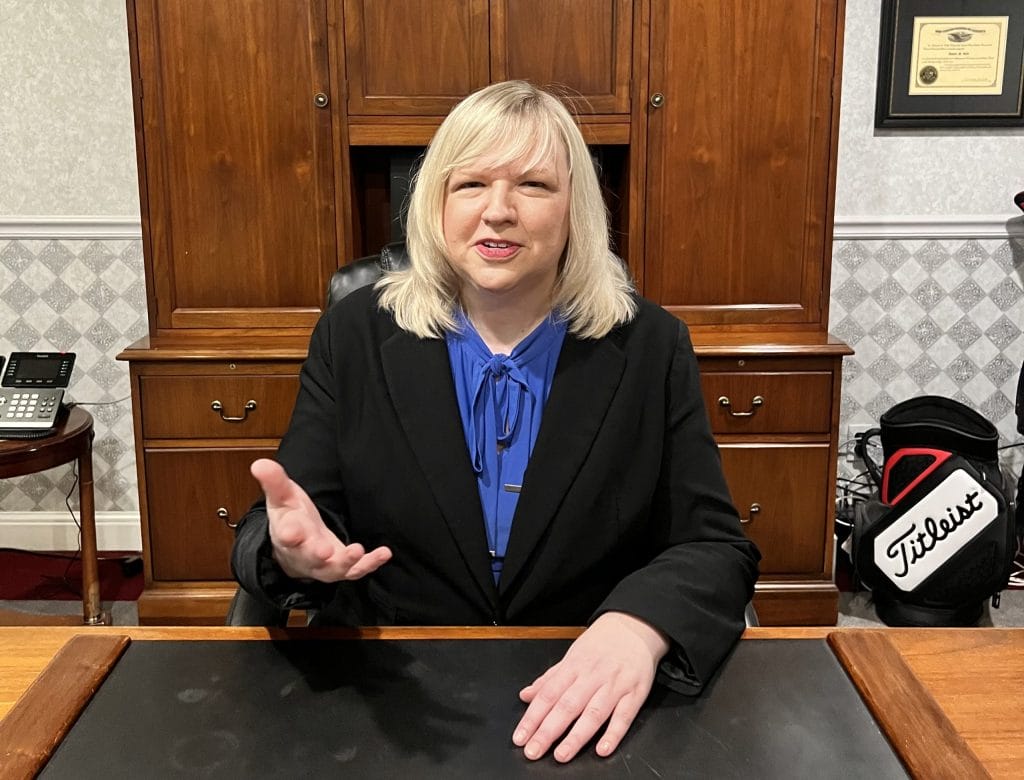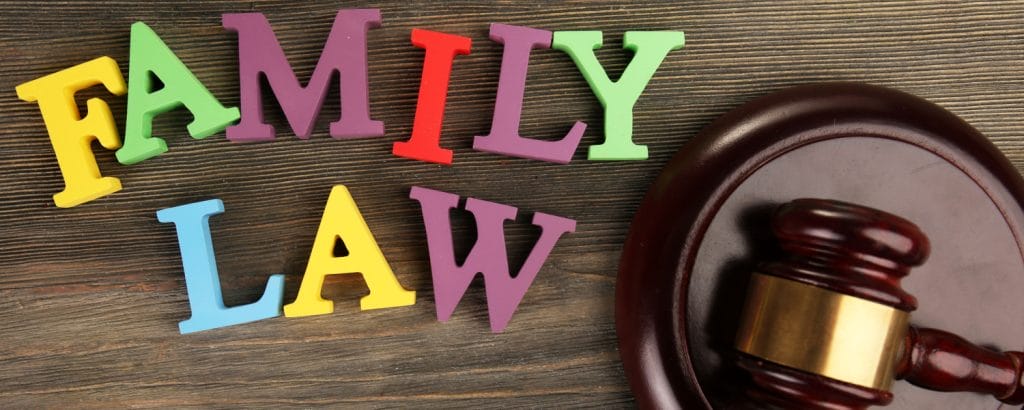Divorce can be an emotionally charged and complex process, often necessitating the assistance of a skilled divorce attorney. When you’re in the midst of a divorce, the last thing you expect is for your lawyer to withdraw from your case. It’s natural to wonder: Does it look bad if your lawyer withdraws from your divorce case in Illinois?
Related article: Why Would A Judge Dismiss A Divorce Case In Illinois?

It is important to understand that lawyer withdrawal is not automatically indicative of any fault on your part or the merits of your case. Lawyer withdrawal can occur for various reasons such as:
- Conflicts of interest
- Ethical concerns
- Personal circumstances
- Irreconcilable Differences
- Non-Payment of Fees
Some clients have been concerned about whether their prior attorney can or will say something negative about them that could hurt their case. Rest assured, attorneys are bound by the rules of ethics to keep communications with clients confidential. This is referred to as the “attorney-client priviledge,” and most lawyers wouldn’t want to risk a potential ethics violation so they are incentivised to refrain from saying anything negative about you. Even if the other party issues a subpoena demanding testimony from your prior attorney, the attorney-client priviledge would likely be a valid defense. Read this article for more information on “Who Can be Subpoenaed in a Divorce Case in Illinois?“
WHY A LAWYER WOULD WITHDRAWAL FROM A DIVORCE CASE
According to Illinois Supreme Court Article VIII Rule 1.16, a lawyer may withdraw from representing a client if withdrawal can be accomplished without material adverse effect on the interests of the client, and if there are legitamate legal reasons to withdraw. There can be several reasons why an attorney would withdrawal in Illinois, including but not limited to:
CONFLICTS OF INTEREST
Conflicts of interest occur when a lawyer’s professional obligations or personal relationships might compromise their ability to provide unbiased representation. This can arise when a lawyer has a relationship with the opposing party, a close connection to a witness, or an interest in the outcome that conflicts with their duty to advocate for their client’s best interests. To maintain professional integrity, lawyers must withdraw from a case when conflicts of interest arise to ensure fair and impartial representation.
Some of our clients have asked, “Can a Lawyer Represent Both Parties in a Divorce in Illinois?”. In Illinois, a lawyer cannot represent both parties in a divorce. Representing both parties in a divorce would create an inherent conflict of interest, as each party has opposing goals and interests in the proceedings.
ETHICAL CONCERNS
Lawyers are bound by a strict code of ethics that governs their professional conduct. If an attorney becomes aware of unethical behavior on the part of their client or encounters situations that could potentially undermine the integrity of the legal process, they may choose to withdraw from the case. Ethical concerns can include fraudulent activities, perjury, or instructions to engage in unethical practices. By withdrawing, lawyers uphold their duty to the legal system and avoid any involvement in questionable actions.
PERSONAL CIRCUMSTANCES
Lawyers, like anyone else, can face personal challenges that may impact their ability to provide effective representation. Personal circumstances such as serious illness, unexpected emergencies, or overwhelming workloads can hinder a lawyer’s capacity to give proper attention and diligence to a divorce case. In such instances, lawyers may opt to withdraw from the case to ensure that clients receive the level of representation they deserve.
IRRECONCILABLE DIFFERENCES:
Sometimes, an attorney may have fundamental disagreements or conflicts with the client that make it difficult to continue representing them effectively. This could be due to a breakdown in communication, differences in strategy, or a lack of cooperation from the client.
NON-PAYMENT OF FEES:
If a client fails to pay their legal fees as agreed upon or becomes consistently delinquent, an attorney may withdraw from the case. Attorneys have the right to be compensated for their services, and if a client is unable or unwilling to fulfill their financial obligations, the attorney may choose to withdraw. This is one of the most common reasons an attorney withdraws from a divorce case in Illinois. So make sure you timely pay all invoices and additional retainer requests to avoid this scenario.

WHAT TO DO IF YOUR LAWYER WITHDRAWS FROM YOUR DIVORCE CASE IN ILLINOIS
Many clients ask us, “What happens when an attorney withdraws from a divorce case in Illinois?” If your lawyer withdraws from your divorce case in Illinois, it is important to take appropriate steps to ensure the continuity of your legal representation and protect your interests. Here are some actions to consider:
- Obtain your case file
- Consult with a new attorney
- Assess the Impact on your case
OBTAIN YOUR CASE FILE
Request a copy of your case file from your withdrawing lawyer. This file contains important documents and information related to your divorce case. Having access to these materials will assist you in transitioning to a new attorney and ensure that vital details are not lost during the process.
CONSULT WITH A NEW ATTORNEY
Promptly seek alternative legal representation by consulting with a new attorney experienced in divorce cases. Research and interview potential attorneys to find someone who understands your situation and can effectively represent your interests. Bring along your case file and any relevant documents to facilitate the transition.
You can decide not to meet with an attorney and instead represent yourself. Depending on the complexity of your case, how far along it is, and your knowledge of the law, Wwhile very difficult and time consuming it is possible to represent yourself in court. Your previous attorney may have outlined strategies with you that can be used to prepare any remaining motions and arguments. Check out our article titled “How to Represent Yourself in Family Court in Illinois” to learn more.
A unique question that comes up when a client is not from Illinois is how to handle divorce from common law marriage. It is important to know that Illinois does not allow couples to get married through common law but if the couple moves to Illinois and becomes a resident, then the same laws apply to them for divorce. There are only nine states that have common law marriage, which include Texas, Iowa, Utah, Colorado, Kansas, Oklahoma, Rhode Island, Montana, and New Hampshire.
ASSESS THE IMPACT ON YOUR CASE
Evaluate the impact of your lawyer’s withdrawal on your divorce case. Discuss with your new attorney how this may affect the timeline, strategy, and any upcoming deadlines. Understanding the consequences will help you prepare for any adjustments that need to be made.
While lawyer withdrawal from a divorce case may initially raise concerns, it does not necessarily reflect negatively on you or the merits of your case. By understanding the reasons behind lawyer withdrawal and promptly securing alternative legal representation, you can navigate this situation effectively. Maintain open communication with your new lawyer, stay focused on your desired outcomes, and trust in the legal process. With the right guidance and resilience, you can successfully overcome the challenges posed by lawyer withdrawal and continue pursuing a fair and satisfactory resolution to your divorce case.
Some may be tempted to continue their divorce process without an attorney; however, it can be risky and potentially disadvantageous. We highly recommend seeking the guidance of a family law attorney before considering how to respond to divorce papers without an attorney. Contact Koth Gregory & Nieminski today for an affordable consultation regarding your divorce.

DISMISSAL V.S. WITHDRAWAL
Dismissal and withdrawal are separate concepts within the legal terminology. While judges and lawyers can dismiss a case under specific circumstances, only a lawyer is able to withdraw from a case. Being aware of what happens when an attorney withdraws from a divorce case can provide valuable insights into the potential consequences and next steps in such a situation.
On the other hand, a dismissal occurs when the court has decided not to proceed with the divorce proceedings. Dismissals can occur for various reasons, which is why it is important to know why a judge would dismiss a divorce case in Illinois to avoid the hassle of refiling your case.
CONCLUSION: Does It Look Bad If Your Lawyer Withdraws From Your Divorce Case In Illinois?
Just because your lawyer withdraws from your divorce case in Illinois does not mean your case is dismissed. There are many reasons why a lawyer may withdraw from your case including conflicts of interest, ethical concerns, or personal reasons. If your lawyer withdraws from your case, you should make sure you receive all important documents from them before they leave, contact a new attorney, and assess how your attorney withdrawing has affected your case. Following these steps will help you and your new attorney create a new plan moving forward, or alter the original plan to fit your new circumstances.
MEET WITH AN ILLINOIS FAMILY LAW ATTORNEY TODAY
The Family Law attorneys at Koth Gregory & Nieminski understand that your family is the top priority, which is why we offer SAME-DAY APPOINTMENTS. If you need a divorce or other family law services, you can schedule your first meeting through our online appointment calendar. We look forward to meeting you.
Disclaimer: This article (Does It Look Bad If Your Lawyer Withdraws From Your Divorce Case In Illinois?) may contain information that is outdated as Illinois law continuously evolves. Meeting with an experienced family law attorney is the best way to ensure you are receiving the most current information about the question: Does It Look Bad If Your Lawyer Withdraws From Your Divorce Case In Illinois?

Published by Dustin Koth on January 22, 2024
